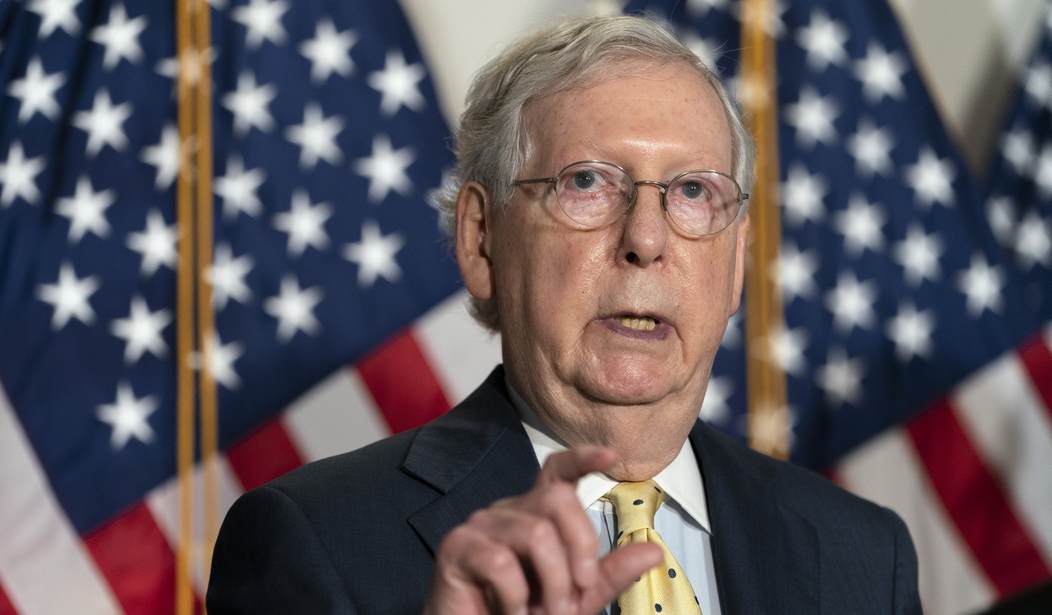Christmas is a magical time when miracles are possible. Republicans and Democrats in Congress are going to need one if they want to pass an omnibus spending bill to keep the government solvent as well as a trillion-dollar pandemic relief bill, all before Christmas.
Indeed, the House is set to adjourn next week, and the government will start to run out of funds on December 11. So whatever they’re going to do, they better do it quickly.
Knowing that the clock is ticking, Senate Majority Leader Mitch McConnell and Speaker of the House Nancy Pelosi talked on the phone after four GOP senators, including Sen. Mitt Romney (R-Utah), gave McConnell an outline of what was in the bill.
“We described the nature of our proposal and what he had seen before, of course, was a number for state and local of $160 billion. And, and we described how it would be allocated how it would be distributed, some portions based on population, some portion based on the revenue gap that might exist for a locality, and so forth,” Romney later told reporters, summarizing the meeting.
The bill would spend $160 billion on aid to state and local governments; $188 billion on extended unemployment; $288 billion for the small business Payroll Protection Program; and billions more for education, pandemic supplies, housing assistance, and vaccine distribution.
The sticking point will be any money going to states to make up budget shortfalls. Some Republicans will absolutely see that as a deal killer. Some others may demand safeguards to keep Democratic governors who have mismanaged their budgets and pension funds from raiding the pandemic relief payments.
Some Democrats will balk at the lack of an individual IRS payment or the extension of unemployment benefits for only three weeks. Suffice it to say there will be opposition from both sides that will threaten to scuttle any “bipartisan” agreement.
McConnell told reporters Tuesday that additional COVID-19 relief funding would likely be added to the expected $1.4 trillion omnibus spending package that would fund the federal government beyond Dec. 11 through fiscal 2021, which ends on Sept. 30.
That’s actually a good strategy. Attaching the pandemic spending bill to the omnibus spending package will make the medicine go down a lot easier for both sides.
Of course, none of this means anything without the support of Donald Trump. And the president has expressed his willingness to sign a pandemic relief bill if it arrives on his desk.
“I want it to happen, and I believe they’re getting very close to a deal,” Trump said in the Oval Office after awarding the Presidential Medal of Freedom to former football coach Lou Holtz.
Asked if he will support a deal, Trump replied, “I will.”
The stars are aligning for Congress to pass pandemic relief before Christmas. But this is where the bottom usually falls out. And Democrats appear far more likely to scuttle the deal than Republicans.










Join the conversation as a VIP Member